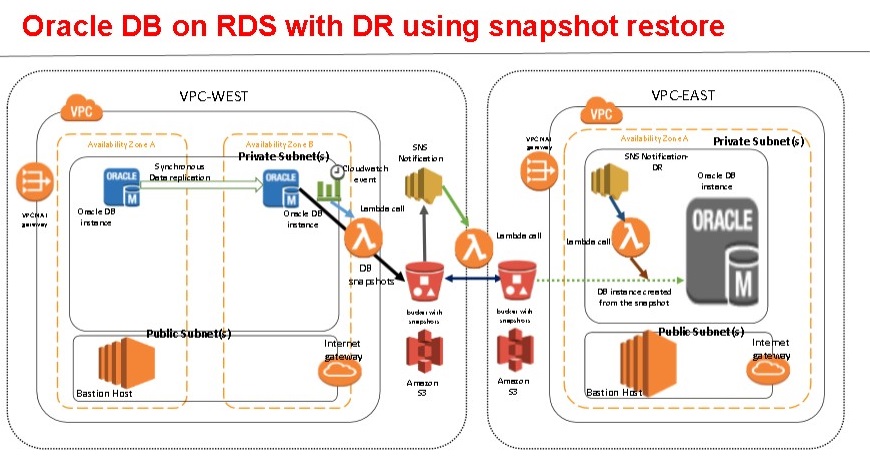


#EPHEMERAL STORAGE LAMBDA FREE#
When mem and storage are configured as equal values, storage is only 0,19% of the cost.ĭevelopers can configure the size of the ephemeral storage in all AWS regions where AWS Lambda is available and are charged for the storage above the 512 MB free limit for the duration of the function invocation. You shouldn't have to store it to the local disk at all. You should be able to stream the contents of an S3 object into your hash algorithm without ever having to store it in the /tmp folder. In an extreme case (512MB mem, 10GB storage) the storage is 3,73% of the execution cost. Update: You can now provision up to 10GB of ephemeral storage with your Lambda functions. Luc van Donkersgoed, lead engineer at PostNL, focuses instead on the cost of the ephemeral storage:ĭid some calculations on ephemeral storage pricing, and I must say: it's very, very reasonable. Worth it? Totally depends on the workload. On Fargate, nonspot, (4vCPU) that same task: ~$0.07. So your most expensive per-invocation lambda cost ends up: ~$0.13. Randall Hunt, VP of cloud strategy and solutions at Caylent, compares the cost of running serverless functions and containers on AWS:ĪWS Lambdas are now configurable up to: 10GB deployment size, 10GB RAM (6vCPU), 10GB /tmp and 15 minute runtime. Tyrrell received many suggestions, from video transcoding to AI/ML workloads, from lift and shift of existing applications to increasing AWS revenue. What are the use cases for 10 GB in a Lambda Function? Is this targeted to the AI/ML crowd? Bryson Tyrrell, technical lead at Jamf software, asked: Just use stateful web services and ditch the slow round-trip time to storage! AKA "memory is your ephemeral store".Īs covered by James Beswick, principal developer advocate at AWS, Lambda supports other three data storage options: S3, Lambda layers and the elastic file system EFS. Simon Crosby, CTO at Swim, is not convinced about the advantages: By default, the platform allocates 512 MB for a function’s temporary directory but the value can be increased using the console, the CLI, or a SDK up to 10 GB. The Lambda execution environment provides an ephemeral /tmp file system that can be used as a transient cache for data between invocations. The feature will help customers that run data workloads such as media processing, machine learning inference or financial analysis.Ĭhanny Yun, principal developer advocate at AWS, explains the previous challenge:ĭata-intensive applications require large amounts of temporary data specific to the invocation or cached data that can be reused for all invocation in the same execution environment in a highly performant manner (.) Since customers could not cache larger data locally in the Lambda execution environment, every function invoke had to read data in parallel, which made scaling out harder for customers. Prior to the release of this feature, we used to have only 512 MB of ephemeral storage per function to store and process data but with this announcement, you can now store and process unlimited data.AWS recently announced that Lambda functions now support up to 10 GB of ephemeral storage that is preserved for the lifetime of the execution environment. The heavy lifting is managed by AWS seamlessly in the background.īefore we start with the implementation part let’s understand the benefit of this feature.
#EPHEMERAL STORAGE LAMBDA UPDATE#
Changing the function’s role or recreating the function causes Lambda to update the grant.) To give an external source (like an EventBridge Rule, SNS, or S3) permission to access the Lambda function, use the resource. The beauty of lambda is you don’t have to manage any servers yourself for running your workload. If the IAM role is recreated, the grant is no longer valid. Lambda is the very famous AWS serverless compute service which is used by many companies ranging from startup to enterprise to run their compute workloads. Moreover, it even supports POSIX which means you can use secure or lock your files using the traditional way. Unlike EBS which is block-based storage, EFS is file-based storage. It is a highly reliable NFS-based regional storage service, with all data stored durably across multiple Availability Zones. Before diving into the integration part let’s have a brief overview of Amazon EFS and Lambda.ĮFS is an abbreviation for Elastic File System.


 0 kommentar(er)
0 kommentar(er)
